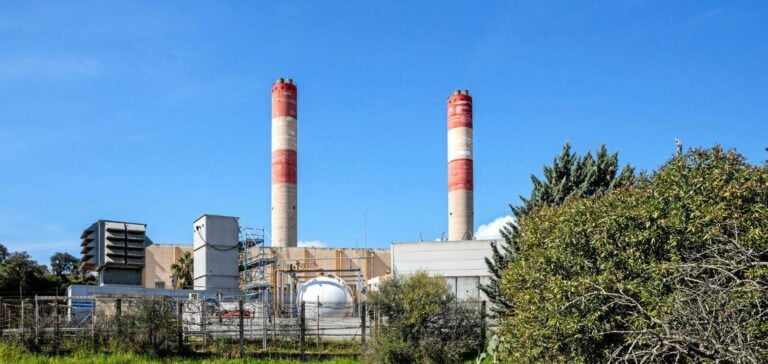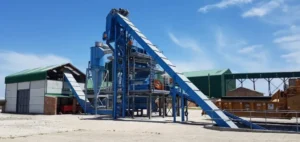Corsica is taking a major step in its energy transition. On Friday, EDF CEO Luc Rémont laid the foundation stone for the Ricanto power plant in Ajaccio, a project powered by liquid biomass derived from rapeseed oil. This initiative, designed to replace the current Vazzio power plant running on heavy fuel oil, is part of an ambitious decarbonization strategy.
The plant, scheduled for commissioning by the end of 2027, will feature eight next-generation engines capable of producing a total output of 130 megawatts (MW). Fueled by 100,000 tons of biomass annually imported from Europe, it is expected to reduce CO2 emissions by 65%, according to EDF. This is particularly significant as greenhouse gas emissions remain a major challenge in combating climate change.
A Solution for Corsica’s Energy Autonomy
According to Luc Rémont, this plant will contribute to strengthening the island’s energy autonomy and meet the needs of approximately 110,000 residents. This €800 million project includes a long-term investment of €6 billion over 25 years for its operation. Catherine Vautrin, Minister for Partnerships with Territories, emphasized the importance of this initiative to end the use of heavy fuel oil in Corsica.
Currently, the island’s energy supply relies on a balance between imports from Italy, renewable energies (solar and hydropower), and the thermal power plants in Vazzio and Lucciana. The Ricanto plant aims to reduce dependence on fossil fuels while complementing efforts toward greener production.
Enhanced Support for the Energy Transition
The government also announced an annual €200 million envelope over ten years to accelerate the island’s energy transition. Despite these efforts, producing electricity in Corsica remains more expensive than in mainland France due to geographical constraints. In 2023, the state allocated €370 million to ensure that the cost per kilowatt-hour is identical on the island and the mainland.
This project comes nearly two decades after the historic power outages of 2005, when exceptionally low temperatures and insufficient production capacities left most Corsican households without electricity for several days. Since then, EDF has bolstered infrastructure to prevent such crises.
As the Ricanto project progresses, it represents a significant milestone in France’s energy strategy for insular territories, marking a step toward a more resilient and sustainable Corsica.






















